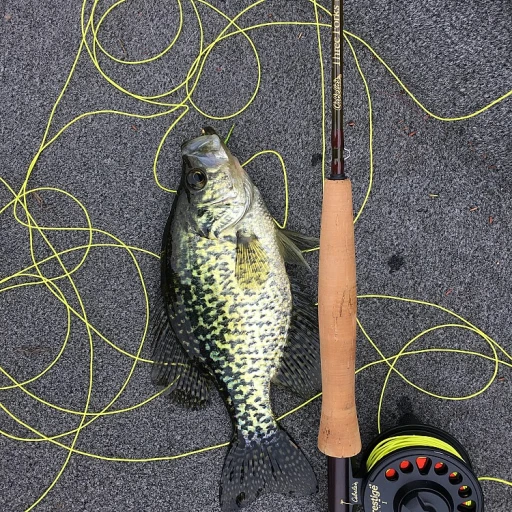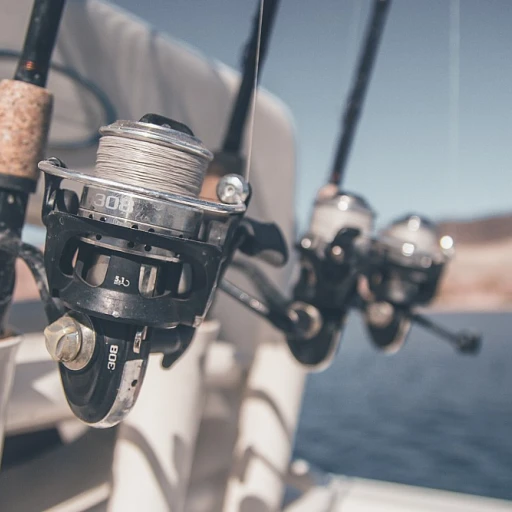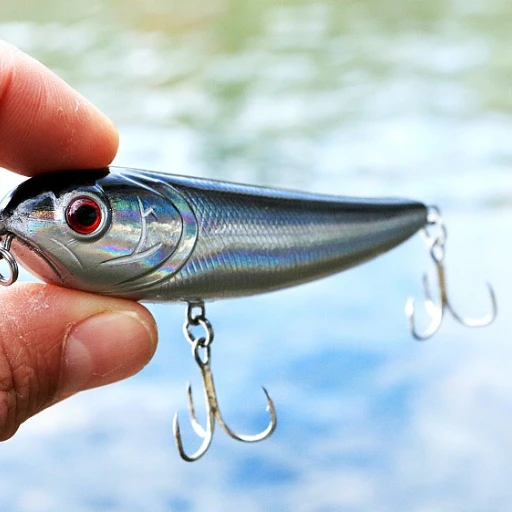Understanding the golden largemouth bass
An unusual discovery on the james river
When Jacob Moore landed that extraordinary golden largemouth bass, the look of surprise was priceless. The James River in Virginia, known for its vibrant fishing scene, had never presented something quite like this before. Fishing enthusiasts, wildlife experts, and casual onlookers were quickly fascinated by this golden phenomenon.
Golden largemouth bass isn’t your everyday catch. To understand why Moore’s catch stood out, we need to delve into why this fish’s unique coloration captures the imagination. Typically, largemouth bass have a greenish hue with dark lateral spots. This golden beauty lacked those traditional features, covered instead in bright yellow skin pigments called xanthism. Xanthism is a genetic mutation that alters skin pigments and it’s extremely rare in largemouth bass.
Meeting the hero: Jacob Moore
Jacob Moore from Chippokes State Park, Va., had been out on an usual fishing expedition when he pulled up his rare catch. “I thought I had landed an alien fish or something!” Moore joked in an interview. Moore’s rare golden largemouth catch quickly became a hot topic among local anglers and the wider fishing community. Not only did the golden bass lack the usual black spots, but it was an absolute stunner.
According to Alex McCrickard, the aquatic education coordinator at the Virginia Department of Wildlife Resources (DWR), such instances are extremely rare. “To see a largemouth bass with xanthism is like hitting the jackpot in the angling world. You just don’t expect it.” McCrickard noted in a recent interview with the Virginia wildlife report.
Local implications and the buzz within the Community
Moore’s unforgettable experience is being shared all over Virginia and beyond. It’s not just his hometown fishers who’ve been talking. Anglers from Michigan to Arkansas have caught wind of the golden largemouth and been tuning into the news. The story even made it to the official Fish Commission reports highlighting its significance.
Moreover, the Virginia Department of Wildlife Resources is now keeping a close watch on the James River for any more such occurrences. Wildlife departments in various states have begun to conduct follow-up studies to understand the prevalence and implications of xanthism. If another golden largemouth bass like Moore's is found, it could add significant insight.
To check out more about other unique and record-breaking catches, have a look at a deep dive into record-breaking catches like
the biggest swordfish ever.
The science behind the golden hue
Mastering the genetic palette
The mystery behind the golden coloration of the largemouth bass has fascinated anglers and scientists alike. This unique hue, scientifically termed xanthism, is a genetic mutation that alters the pigments in the fish's skin. Unlike albinism, which removes pigments entirely, xanthism converts the normally green bass into a striking yellow.
Understanding xanthism in detail
Xanthism, according to Alex McCrickard, the Aquatic Education Coordinator at the Virginia Department of Wildlife Resources (DWR), is a rare occurrence. Studies indicate that this condition affects a very small percentage of largemouth bass, making a sighting extremely rare. In fact, only one in several million bass may exhibit this golden coloration.
The rarity and significance
The Virginia Department of Wildlife Resources reported that the rare golden largemouth bass caught by Jacob Moore in the James River had shocked even seasoned anglers. Josh Rogers points out that this genetic mutation is not only interesting from a biological perspective but also significant to the fishing community, representing a marvel of nature. This rarity makes every sighting a subject of news and excitement.
Case study: Jacob Moore's golden catch
Jacob Moore, a dedicated angler, was fishing at Beaver Lake, Arkansas when he had a once-in-a-lifetime encounter. He reeled in a golden bass that completely deviated from the usual black-spotted look of the largemouth bass. This amazing catch was quickly reported to the local department of wildlife resources and became a viral sensation, highlighting how such an unusual hue can captivate and astonish.
Scientific insights and future research
Experts like Jon Stein from the Fish Commission stress that continued study on genetic mutations like xanthism is essential. Research on these genetic markers helps in understanding not only the evolution of these traits but also their potential impact on the ecosystem. Insights from the Virginia Department of Wildlife underscore the importance of documenting every instance of such rare occurrences to build a comprehensive dataset for future study.
Learn more about other giant catches by exploring record-breaking catches.
Famous catches and angler stories
Renowned golden largemouth catches and angler tales
The golden largemouth bass is an angler's dream catch, and whenever one of these golden beauties gets reeled in, it makes headlines. Meet Jacob Moore, a passionate angler from Va., who holds one of the most famous catches in recent history. While fishing in the James River near Chippokes State Park, Moore hooked what he first thought was an ordinary largemouth bass. To his amazement, the fish he pulled from the water glittered with an unusual golden hue. This rare catch soon became the talk of the fishing community and was featured in numerous news outlets.
But Moore isn't the only one who has had the pleasure of catching a golden largemouth. In Arkansas, at Beaver Lake, Josh Rogers caught an equally stunning golden bass. The fish commission of Arkansas validated his extraordinary catch, citing that the bass's unique yellow coloration was due to a genetic mutation called xanthism, which alters skin pigments.
Such rare catches invariably lead anglers to share their tales, and perhaps no one has captivated audiences more than Alex McCrickard, the Aquatic Education Coordinator for the Virginia Department of Wildlife Resources. McCrickard emphasizes that the chances of catching a golden largemouth bass are "extremely rare," adding a layer of mystique and excitement to these already extraordinary angling experiences.
These stories not only create buzz but also encourage a broader conservation message. Organizations like the Virginia Department of Wildlife Resources utilize the excitement around these rare catches to promote awareness about conservation efforts and the importance of preserving aquatic habitats.
Enthusiasts and anglers alike share these stories, linking their extraordinary finds back to the science behind the golden largemouth bass and the intricate details of their mutation. To learn more about how these fish perceive their environment, you can delve into the surprising mysteries of fish vision, which offer a fascinating lens into how golden largemouth bass navigate their underwater world.
The role of wildlife departments
The hands-on efforts of wildlife departments
When Jacob Moore landed his rare golden largemouth bass in Virginia, it wasn’t just sensational news for the angling community—it brought significant attention to the efforts of wildlife departments. These organizations, like the Virginia Department of Wildlife Resources, play a crucial role in monitoring and protecting such unusual specimens.
Virginia’s Department of Wildlife Resources (DWR), led by experts like Aquatic Education Coordinator Alex McCrickard, spends countless hours studying and preserving local fish populations. The sudden appearance of a bass with xanthism—a mutation altering skin pigments—is a good reason to celebrate the department's relentless commitment to wildlife conservation.
The genetic mutation causing xanthism is a rare occurrence. Experts at the DWR, such as Jon Stein, highlight how the mutation leads to a golden hue, hauntingly devoid of the usual black spots that typically characterize a largemouth bass. Xanthism not only alters the skin pigments but also produces striking golden bass that are an absolute delight for anglers and biologists alike.
The incident with Jacob Moore has prompted the DWR to further study and document these occurrences to better understand their environmental and genetic implications. Agencies across various states, including Arkansas's Fish Commission and Michigan's wildlife departments, also keep tabs on such unique phenomena. By identifying and recording the instances of xanthism, these bodies aim to protect the genetic diversity within fish populations and ensure that anglers can continue to marvel at their rare catches.
Chippokes State Park in Virginia, where Moore’s catch occurred, is a primary example of how local parks and wildlife services support angling activities while prioritizing ecological balance. The golden largemouth bass serves as an educational touchpoint, reinforcing the importance of wildlife conservation efforts.
Experts emphasize the need for sustained funding and public support to maintain these conservation programs. Josh Rogers from the Fish Commission states, “Conservation is not just a one-time effort but a continuous process involving research, education, and active management to protect our natural treasures.” This sentiment echoes across the various wildlife departments in the U.S., as they persistently work on projects aiming to safeguard rare varieties like the golden largemouth bass.
The fascinating case of the golden largemouth bass and the dedicated involvement of wildlife departments underline a shared responsibility among anglers and the authorities to nurture and preserve our aquatic life. Active conservation promoted by these departments ensures that the joy of reeling in an extremely rare catch isn't a fleeting moment but a testament to ongoing efforts in wildlife preservation.
Reeling in the buzz
The golden largemouth bass has certainly made waves in the fishing community, sparking excitement and curiosity among anglers everywhere. This dazzling fish isn't just a rare catch; it's a conversation starter. Anglers from Virginia to Florida are swapping tales of their own fishing exploits, hoping to one day land such a unique prize.
A new kind of trophy
For many, the allure of catching a golden largemouth bass lies in its rarity and beauty. It's not just about the bragging rights—though those are certainly part of it. It's about the thrill of encountering something so extraordinary in the wild. Anglers like Jacob Moore, who caught a golden largemouth in the James River, have become minor celebrities in their own right, with their stories being shared far and wide.
Fueling the passion
The excitement surrounding the golden largemouth bass has also fueled a renewed passion for fishing. Anglers are spending more time on the water, hoping to experience the magic of a golden catch. This enthusiasm is contagious, drawing new folks into the fishing fold and reigniting the passion of seasoned veterans. It's a testament to the power of a single, remarkable fish to inspire and unite a community.
Economic ripple effects
The golden largemouth bass phenomenon isn't just a boon for anglers; it's also having a positive impact on local economies. With more people eager to try their luck, fishing gear sales have seen a boost, and local guides and charter services are enjoying increased business. This uptick in activity is a welcome development for many small businesses that rely on the fishing industry.
Community connection
Beyond the economic and recreational benefits, the golden largemouth bass is fostering a sense of community among anglers. Social media groups and forums are buzzing with discussions about this rare fish, with anglers sharing tips, stories, and photos. It's a reminder of the camaraderie that fishing can create, bringing people together over a shared passion and a love for the outdoors.
Conservation and future prospects
Preserving the golden legacy
The golden largemouth bass, with its striking hue and rarity, has captured the hearts of anglers and wildlife enthusiasts alike. As we've explored earlier, this fish isn't just a genetic curiosity; it's a symbol of nature's unpredictability and beauty. But with such uniqueness comes the responsibility to ensure its survival for future generations.
In Virginia, the Department of Wildlife Resources (DWR) has taken steps to monitor and protect these rare golden bass. Their efforts include tracking sightings and encouraging anglers to report any catches of this unique fish. Jacob Moore, an aquatic education coordinator with the DWR, has emphasized the importance of educating the public about the significance of these fish and the role they play in the ecosystem.
Conservation isn't just about protecting the fish; it's about preserving the entire environment they inhabit. The James River, where Jacob Moore famously caught his golden largemouth bass, is a vital habitat that supports a diverse range of wildlife. Efforts to maintain clean water and healthy ecosystems are crucial for the survival of not just the golden bass, but all aquatic life.
Community involvement and awareness
The fishing community plays a pivotal role in the conservation of the golden largemouth bass. Anglers are often the first to encounter these rare fish, making them essential allies in the effort to protect them. By promoting catch-and-release practices and spreading awareness about the rarity and significance of the golden largemouth, anglers can contribute to its preservation.
Moreover, events and programs organized by wildlife departments and local fishing clubs can foster a sense of community and shared responsibility. These gatherings not only provide education on sustainable fishing practices but also celebrate the unique experiences that come with encountering such rare catches.
Looking ahead
The future of the golden largemouth bass depends on the continued collaboration between wildlife departments, anglers, and the broader community. By working together, we can ensure that this extraordinary fish remains a part of our natural heritage.
As we move forward, it's crucial to remember that each golden largemouth bass is a reminder of the wonders of nature and the importance of preserving it for future generations. With ongoing conservation efforts and community support, we can look forward to a future where anglers continue to share stories of their rare catches and the golden largemouth bass continues to thrive in its natural habitat.
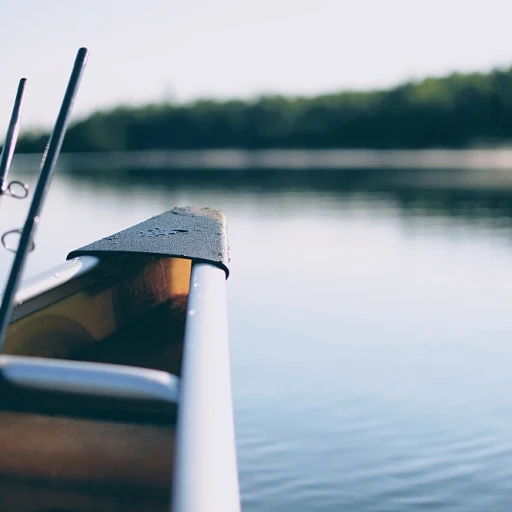

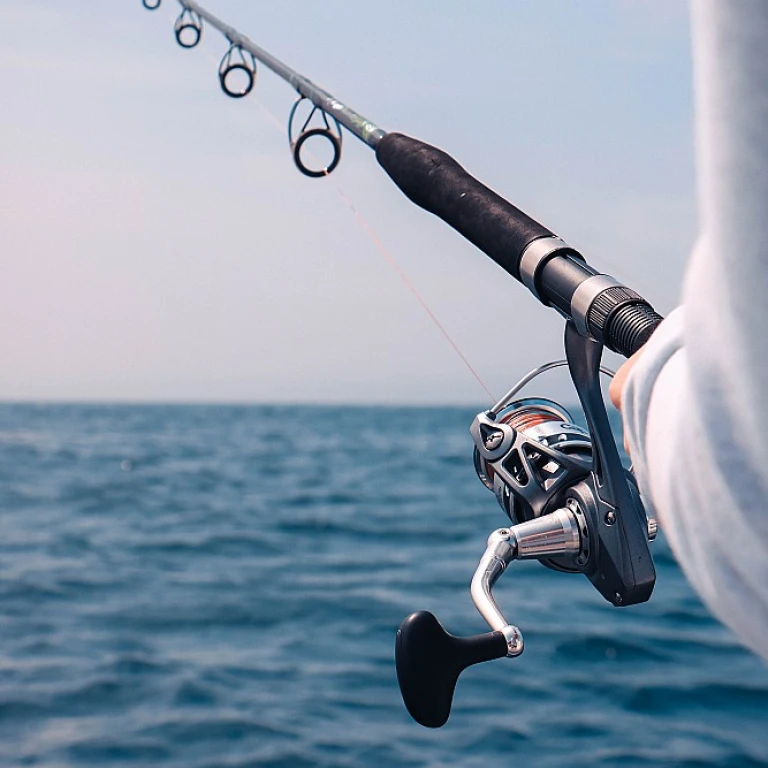

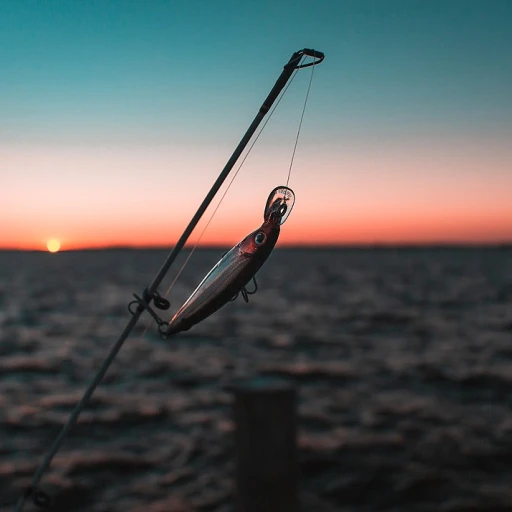
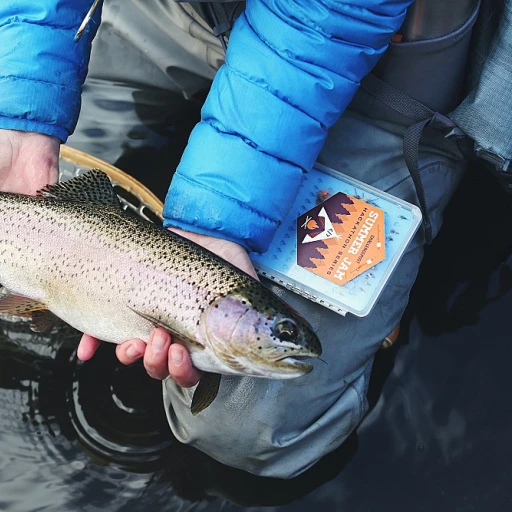

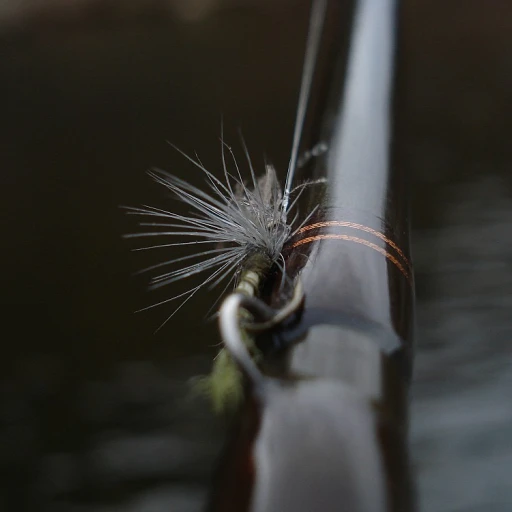
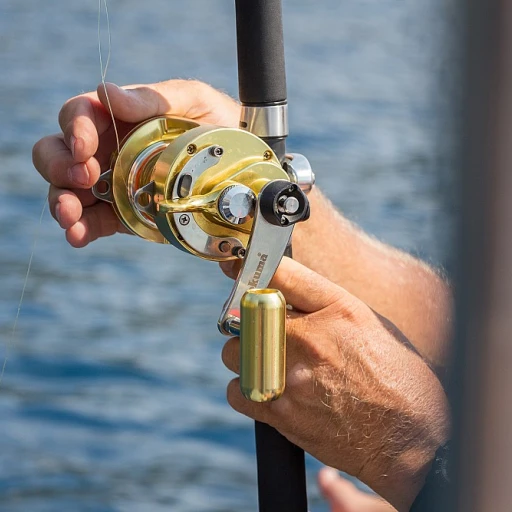
-large-teaser.webp)


